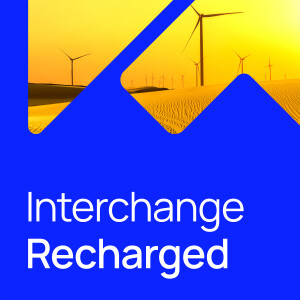
A ground-breaking new method of sustainable aviation fuel production
 2024-03-12
2024-03-12
A breakthrough way of producing hydrocarbons, crucial to the aviation industry, could reduce costs and accelerate decarbonisation.
Sustainable aviation fuel (SAF) is a key component in the aviation industry's path to decarbonization, which contributes to only 2% of global carbon emissions but is actively seeking cleaner solutions. Airbus and other aerospace companies are leading the charge, with Airbus integrating over 11 million litres of SAF in its operations in 2023, reducing carbon emissions significantly. The industry aims to increase SAF production to 17.5 billion litres by 2030, supported by initiatives like the IRA.
On this episode of Wood Mackenzie's The Interchange Recharged, David Banmiller speaks with Andrew Symes, founder and CEO of OXCCU. They’re developing a more efficient way of converting CO2 and hydrogen into hydrocarbons, potentially a monumental step towards more scalable and environmentally-friendly fuels.
Despite technological advancements, challenges in financing, regulatory support, and talent acquisition persist. SAF's integration with existing aviation infrastructure without the need for modifications is one key benefit; it could create a smoother transition to greener aviation, with expectations for SAF to achieve cost parity with Jet A fuel (the current standard) as technology and scale improve. The SAF industry enjoys broad support from airlines, governments, and regulatory initiatives, who are pushing for increased SAF adoption towards a net-zero future by 2050. The technology behind SAF, and as Andrew explains, the science behind OXCCU, not only promises to revolutionize aviation but also has applications in producing chemicals and plastics, signalling a broader impact on sustainability across various sectors and the goal of a circular economy.
See Privacy Policy at https://art19.com/privacy and California Privacy Notice at https://art19.com/privacy#do-not-sell-my-info.
More Episodes
 2024-02-27
2024-02-27
 2024-01-17
2024-01-17
 2024-01-03
2024-01-03
 2023-11-24
2023-11-24
 2023-08-04
2023-08-04
Create your
podcast in
minutes
- Full-featured podcast site
- Unlimited storage and bandwidth
- Comprehensive podcast stats
- Distribute to Apple Podcasts, Spotify, and more
- Make money with your podcast
It is Free
- Privacy Policy
- Cookie Policy
- Terms of Use
- Consent Preferences
- Copyright © 2015-2024 Podbean.com




